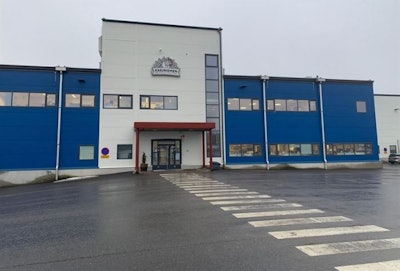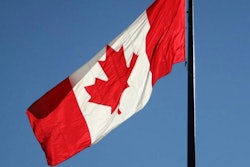
For Finland-based meat company HKScan, 2021 was marked by multiple business challenges. While overall sales were higher year-on-year, higher costs reduced profitability in the fourth quarter and for the full year. Nevertheless, the group continues with its plan to transform into a more comprehensive food company.
For the period October-December 2021, HKScan has reported a 4% hike in net sales overall to EUR491.6 million (US$558 million). In addition to Finland, the group has poultry, pork, and beef processing businesses in Denmark, Sweden, and the Baltic region.
A year-on-year increase of 4%, this was attributed partly to a recovery in food service following the lifting of restrictions related to the coronavirus (COVID-19) pandemic. Overall, the firm reported higher sales of its value-added products generally.
However, group profitability still needs improvement, according to HKScan’s CEO, Tero Hemmilä.
Expressed as Earnings Before Interest and Taxes (EBIT), fourth-quarter profit fell from EUR17.5 million in 2020 to EUR7.6 million last year. While group-wide comparable EBIT fell almost 40% to EUR7.6 million, this measure tumbled 50% to EUR5.2 million for the Finnish business. While costs such as energy and commodities for feed continued to spiral upwards for the whole group over the period, the firm was able to pass on these price rises only to its customers in Finland.
As HKScan’s Swedish operation achieved a 20% year-on-year improvement in comparable EBIT for the quarter, the Baltics region turned in a negative figure of EUR4.5 million. As well as higher production costs, this business also struggled with low pork prices arising from overproduction in Europe. Denmark turned a quarterly loss in 2020 into a positive EBIT of EUR1 million.
Net sales up, EBIT down year-on-year in 2021
For the full fiscal year ended December of 2021, HKScan reported a near 2% rise in overall net sales at just over EUR1.815 billion. On the basis of comparable exchange rates, the company reports net sales unchanged from 2020.
Overall EBIT for the group was down from EUR21.3 million the previous year to EUR17.9 million in 2021. Comparable EBIT was reported at EUR14.5 million, which was EUR2.5 million lower year-on-year.
For the firm’s operations in Finland and Sweden, comparable EBIT showed improvements from the previous year. The same factors hitting the Baltics business during the fourth quarter were blamed for a EUR9.1 million development in this parameter year-on-year to a loss of EUR5.1 million. Despite highly pathogenic avian influenza outbreaks in Denmark during 2021, the firm’s operation there achieved a zero comparative EBIT. The business successfully responded to the adverse impacts of the disease by shifting sales towards more value-added poultry products.
As result of lower profit and volatility in working capital, HKScan’s cash flow from operations in 2021 was EUR54.6 million. This was EUR9.1 million below the figure reported for the previous fiscal year.
Outlook, business developments
For 2022, HKScan forecasts an improvement in comparable EBIT from last year. However, results for the first quarter are expected to be weaker than in the same period of last year. Reasons given are continued cost inflation, as well as “significant imbalances” in global markets for grain and meat.
As the group’s three-year Turnaround program closed in 2021, HKScan reports it resulted in improved profitability. Amounting to a cumulative total of EUR61 million in comparable EBIT, Hemmilä described the improvement as a good achievement under challenging business conditions.
However, he said, profitability is still insufficient. In 2022, the company will continue to focus on improving competitiveness and profitability of its core business. This focus will likely require measures to increase net sales, strengthen profitability, and improve cost efficiency and productivity.
Looking ahead, HKScan needs a stronger balance, according to the CEO. This is required if it is to achieve its goal to transform into a more comprehensive food company. As the company builds new businesses, it will continuously assess its existing operations.
As an example of a recent diversification, Hemmilä highlighted the group’s latest foray into fish farming. Last year, HKScan and Scandinavian Aquasystems AB signed a cooperation agreement for the sale of fish products, and the production of meal components made from fish in Sweden.
More on HKScan
With annual slaughterings of around 93 million birds, HKScan is among the top poultry meat companies in Europe. This is according to WATTPoultry.com's Top Poultry Companies database.
HKScan is among the leading food companies in northern Europe and Russia. HKScan produces, sells and markets pork and beef, poultry products, processed meats and convenience foods under brand names including HK, Scan, Kariniemen in Finland, Rose in Denmark, and the pan-Baltic brands Tallegg and Rakvere. HKScan exports to about 50 countries and employs nearly 7,000 people.
In January of this year, the firm announced it had received authorization to export fresh poultry meat from its Rauma processing plant to South Korea.
Earlier this month, plans were revealed by HKScan to streamline its operating model. Changes will see group functions focusing on strategic development projects and leadership, as well as good corporate governance. With job losses estimated at around 20, statutory negotiations underway in group functions and the firm’s business unit in Finland are scheduled for completion next month.

















